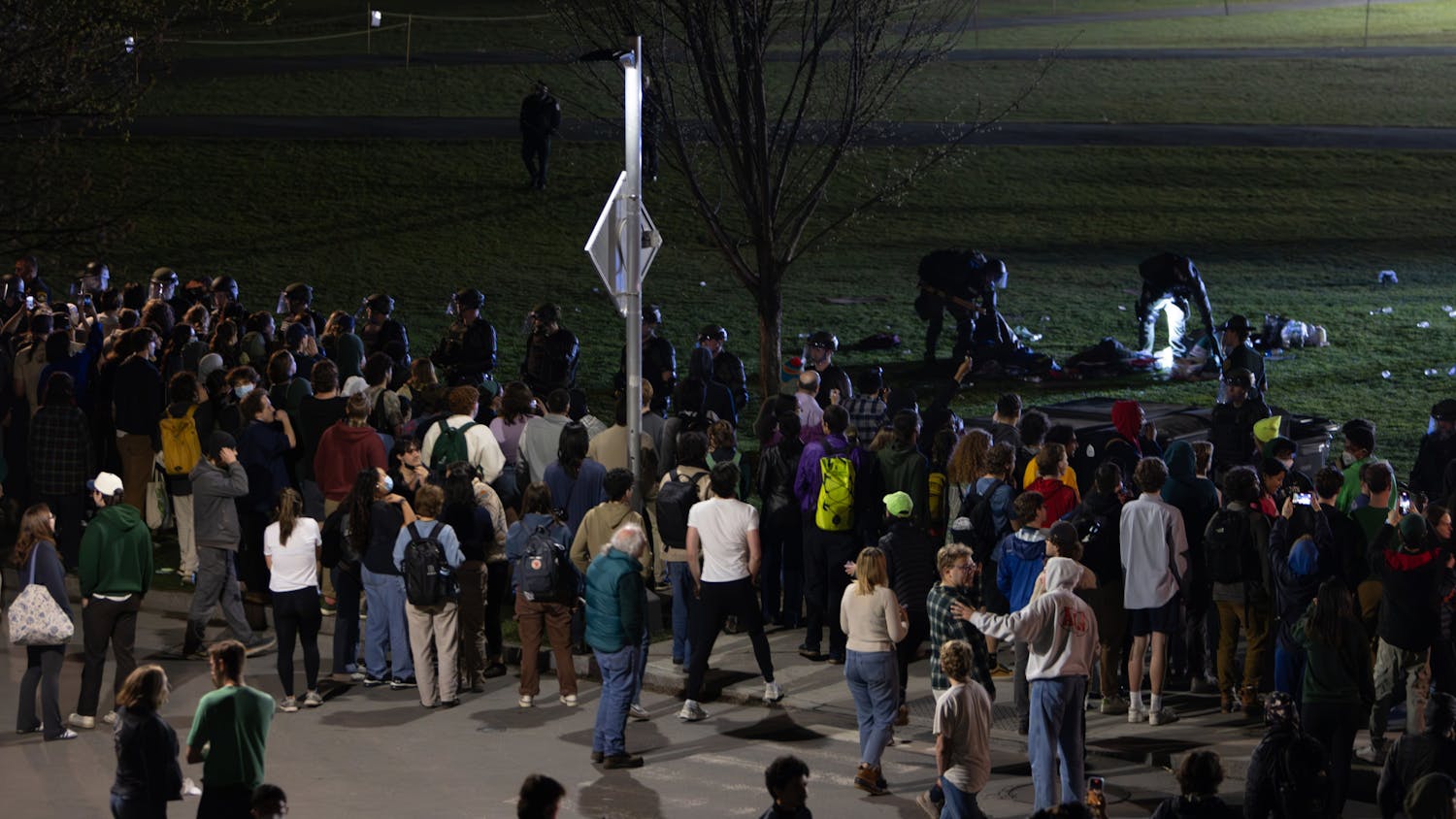Lawyers defending former Dartmouth student Parker Gilbert ’16 have filed several motions with the Grafton Superior Court in recent months, providing clues into the defense team’s strategies. Gilbert, who was accused of rape by a female student last May, has also hired Robert Cary ’86, a prominent Washington, D.C. lawyer, to help with the defense, the Valley News reported on Saturday.
In an Oct. 3 notice, one of Gilbert’s attorneys, George Ostler, told the Valley News that the defense “may rely on the defense of intoxication, which negates the culpable mental state required for the commission of the offenses.”
Gilbert’s defense team has also filed motions asking the court to present all records showing entry into the dormitory where the alleged assault took place, as well as the victim’s medical information and documents pertinent to the investigation from Safety and Security, the Dean’s Office, the Undergraduate Judicial Affairs office and the Committee on Standards.
The court has not ruled on any of the requests.
Last Wednesday, the state filed an objection to the motion because the victim has only consented to releasing medical information that is related to the sexual assault. The prosecutors said the request is asking for a “broad sweep” of information that would be “inappropriate.”
The defense also asked for the victim’s phone records, including when she sent and received text messages, as well as her emails from the beginning of May.
The prosecution said that they have already given the defense all relevant emails and that the requests are a part of “a campaign designed to harass the victim”, the Valley News reported.
Kate Rohdenburg, program manager for WISE, which offers support to victims of violence and sexual assault through the Tucker Foundation, said the tactic of asking for the victim’s personal correspondence could be seen as a method of intimidation.
“I could imagine being put in those shoes,” Rohdenburg said. “Being threatened to have people look at my phone and email could be really intimidating. This is one of the reasons why survivors would rather not be subject to defense attorneys.”
Robert Bernstein, a Los Angeles-based criminal defense attorney, said these tactics are often used by defense lawyers to attack a witness’s credibility, which can make juries less likely to believe the prosecution’s case.
“If you can attack that person’s credibility, that’s the most normal force that a defense attorney would use,” he said. “It’s the most effective tactic because, as serious of a charge as it is, some women aren’t telling the truth.”
The defense has also requested that the jury be allowed to visit the two-room double where the alleged assault took place, with the intention of demonstrating that the walls are thin enough that the incident could have been heard from the next room.
According to the defense, materials indicates that the alleged victim’s roommate may have been awake in the other room during the time of the incident and heard sounds “only consistent with consensual sex,” the Valley News reported.
The prosecution did not contest the request but said that the room would look different than it did last May, since different students are living in that space. The court has not ruled on the request yet.
Gilbert pleaded not guilty to seven counts of aggravated sexual assault in August. Each count carries a penalty of up to 20 years in prison.
Cary defended former Sen. Ted Stevens, R-Ala., when he was indicted for ethics violations in 2008.
Gilbert is no longer enrolled as a student at the College. Oster has set a motion to schedule the trial for the week of March 17.
Ostler and Grafton County attorney Lara Saffo could not be reached for comment by press time.



